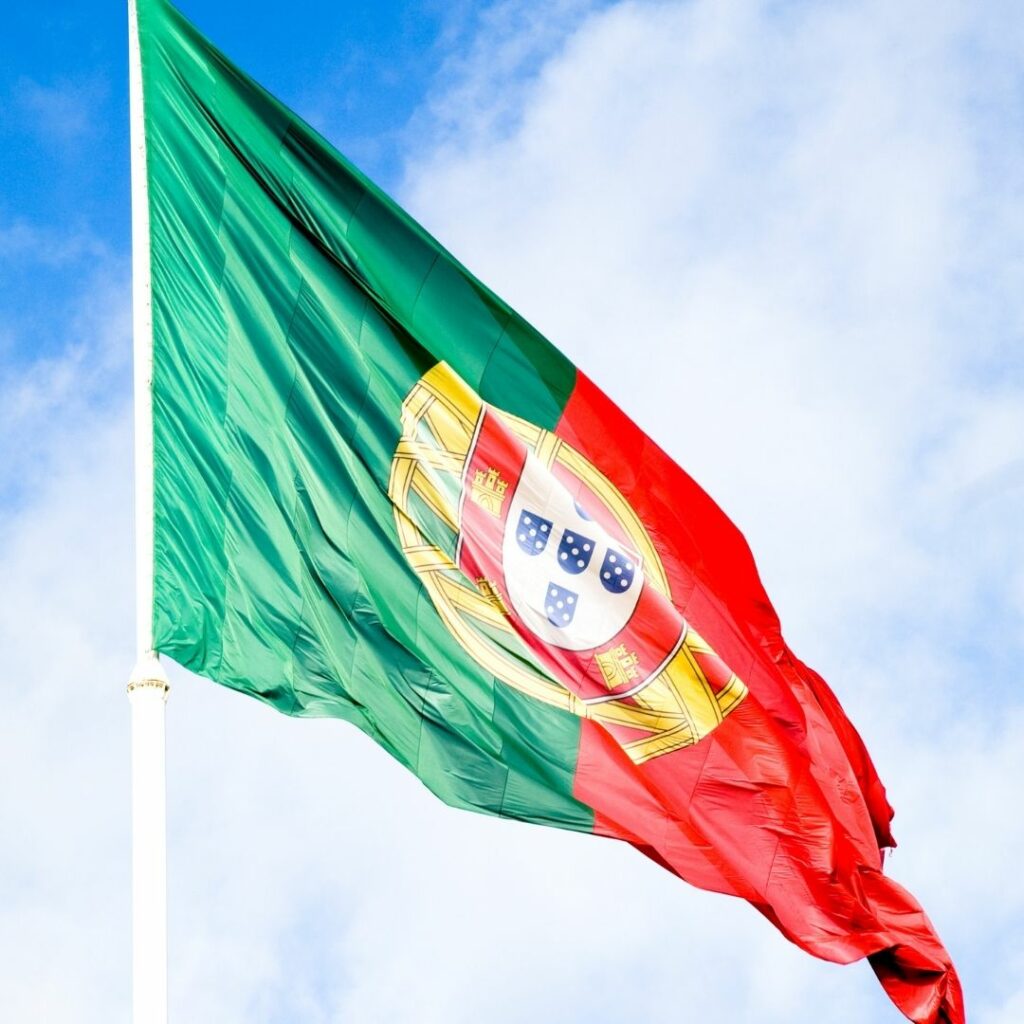Portugal
Categories Score
The full bar chart stands for 100%, and is filled by the country category score. The colour display uses the traffic light palette, with Green representing a score closer to 100% and Red a score closer to 0%.
ASYLUM
This category looks into laws that expressly include SOGISC as a qualification criteria for seeking asylum. We also take into account other legislation, policies, instruction or positive measures by state actors that are related to asylum addressing the needs and rights of LGBTI asylum seekers and refugees.
Criteria Compliance Ratio
Each pie charts stands for a category and is divided in slices by criteria. When a country complies with a criteria – fully or in some regions – the slice is coloured.
Keep in mind the criteria have different weighting factor within a category; for example, the criteria Prohibition of medical intervention without informed consent (intersex) stands for half (2.5%) of the INTERSEX BODILY INTEGRITY category weighting factor (5%). Meaning that even if a country can only comply with this specific criteria within the category (1/4 total criteria) the category scores 50%.
More information on the categories and criteria weighting factors here.
Category & Criteria Table
The table lists detailed information and insights on legislation supporting each criterion status. Please use the filters for in-depth analysis.
n/a = not applicable, meaning the criteria didn’t exist in the previous Rainbow Map edition (PROGRESSION column)
- Complies
- Applicable in some regions only
- Does not Comply
RECOMMENDATIONS
In order to improve the legal and policy situation of LGBTI people in Portugal, ILGA-Europe recommend:
- Amending the constitution by expressly referring to sexual orientation, gender identity, gender expression, and sex characteristics.
- Introducing public policies and other measures on asylum that contain express mention of all SOGIESC (sexual orientation, gender identity, gender expression, sex characteristics) grounds.
- Ensuring that the legal gender recognition legal framework and procedures include a non-binary or third gender option.
Annual Review of Portugal
In our Annual Review of the Human Rights Situation of LGBTI People in Europe and Central Asia, we examine the advances made and provide concrete examples of on-the-ground situations at national level country-by-country in the 12 months from January to December 2024.
Read our Annual Review of Portugal below for more details and stories behind the Rainbow Map. You can also download the Annual Review chapter (.pdf) covering Portugal.
-
On the International Day to Combat Hate Speech, Minister of Youth and Modernisation Margarida Balseiro Lopes highlighted the Government’s concerns over rising hate speech. Balseiro underscored the need to review legislation for better victim protection, enhance public awareness, and support victims.
In August, the organisation Corpus published a list on social media titled “LGBTIA+ terrorists heavily funded with Portuguese tax money, with the socialist propaganda machine at their service,” aiming to incite violence against those named. This list is part of the organisation’s ongoing campaign to expose LGBTI activists and supporters, under the guise of fighting against what they claim is the misuse of Portuguese tax money for supporting LGBTI rights.
-
The Public Security Police and the National Republican Guard reported that hate crimes and hate speech in Portugal increased by 38% in 2023 compared to the previous year, with authorities documenting 347 incidents. The head of the Victim Support Association (APAV) highlighted that many incidents which should be classified as hate crimes are not adequately reported or misclassified due to inadequate recording practices.
-
In late January, President de Sousa vetoed a law that mandated schools to implement measures ensuring students’ right to self- determination of gender identity. According to the Portuguese Presidency, the veto was issued because the decree on neutral names did not adequately align with the essential principle of personal freedom. The PAN party criticised the President for his “ideological conservatism,” denouncing his decision to reject parliamentary measures designed to protect and affirm students’ gender identity and expression in educational settings.
-
In June, Randstad released its 2024 Workmonitor Pulse Survey, highlighting that while 49% of LGBTI employees feel comfortable discussing their identity at work, 28% still avoid it. The survey underscored that non-inclusive workplaces not only drive LGBTI talent away but also impact motivation and productivity, with discrimination concerns affecting 40% of LGBTI workers.
-
The Armed Forces have announced the development of a manual to improve the integration of women and trans people. The initiative was promoted as part of the National Defence Sector Plan for Equality 2022-2025.
In January, the General Inspection of Internal Administration initiated disciplinary proceedings against 13 PSP police officers and GNR soldiers for sharing xenophobic and homophobic posts on social media.
On International Day of Remembrance for Holocaust Victims, President Marcelo Rebelo de Sousa urged citizens to combat all forms of racism, anti-Semitism, discrimination, xenophobia, and homophobia.
On the IDAHOBIT the City Council of Funchal, Lisbon, Almada, Loures, Porto, Leiria raised the rainbow flag, underscoring their commitment to combating violence and discrimination against the LGBTI community.
In May, the facade of the Assembly of the Republic in Porto was illuminated in rainbow colours to commemorate IDAHOBIT.
In July, addressing a parliamentary hearing, Minister of Youth Margarida Balseiro Lopes acknowledged that discrimination against LGBTI people exists in Portugal and reaffirmed the Government’s commitment to human rights.
In July, the Lisbon City Council approved municipal plans extending to 2026 focusing on gender equality, LGBTI rights, and the prevention of violence against women. The initiatives aim to promote LGBTI rights and work towards a more equitable municipality free from violence and discrimination.
-
In May, former Minister of Education João Costa announced the launch of his book, “Manifesto pelas Identidades e Famílias (Manifesto for Identities and Families)”. In the introduction, Costa clarified that the book is a direct response to the controversial “Identidade e Família (Identity and Family)” collection, edited by former Prime Minister Pedro Passos Coelho. Costa criticises what he perceives as an “attack on conquered rights” and an effort to impose a particular moral view on those who do not share it. He argued that movements opposing gender ideology and euthanasia, as presented in Coelho’s collection, represent a “regression in civilisational advancement and an imposition of a singular moral perspective”.
-
In March, the Advisory Group for Sexual and Gender Diversity, previously monitoring the Health Strategy for LGBTI people, was officially integrated into Portugal’s Directorate-General for Health (DGS). The Group is expected to maintain its mission to evaluate the implementation of the Health Strategy for LGBTI people.
In March, the Directorate for General Health (DGS) considered ending anonymity in cases of sexually transmitted diseases.
GAT – Group of Activists in Treatment – denounced that this reversal communicates the policing of other people’s sex lives, is a screening deterrent and will promote the underreporting of STIs.
In July, the Minister of Youth and Modernisation announced that anyone with a uterus, regardless of their name or gender marker in identity documents, will be included in cervical cancer screenings.
With the aim of carrying out a diagnosis of the situation regarding menstrual health in Portugal, the Directorate-General for Health developed the online questionnaire – “Let’s talk about menstruation?” The Directorate-General was subjected to criticism for using the wording ‘people who menstruate’ while referring to its expected target audience.
-
In January, President de Sousa signed a decree banning forced conversion practices for LGBTI people. Furthermore, the decree imposes penalties of up to three years in prison or fines for those involved in such practices. In cases of “irreversible modifications” to the body, the sentence can be extended to up to five years in prison. As part of the provision, the decree establishes that the convicted may face professional and legal restrictions, especially in activities that involve contact with minors. The law entered into force on 1 March, 2024.
-
The Commission for Citizenship and Gender Equality (CIG) expressed its commitment to contribute to the development of the National Strategy for Equality and Non-Discrimination 2018-2030. The plan aims to combat discrimination based on sexual orientation, gender identity, expression, and sexual characteristics through a broad range of activities such as the enhancement of the competencies of professionals across both public and private sectors.
-
In January, the Committee on Constitutional Affairs of the Assembly of the Republic approved a proposal to allow individuals to choose gender-neutral names. The initiative aimed at eliminating the existing requirement for names to be strictly identified with either male or female genders.
The full Annual Review for 2025 is available here.


